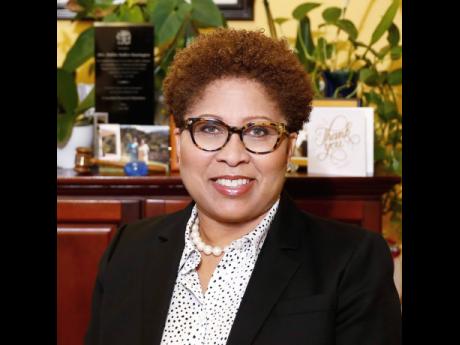Immigration Corner | Should I tell the embassy my mother lives in the US?
Dear Mrs Walker-Huntington,
I read your article in the Jamaica Gleaner and I find it very informative; thank you.
I have a question. My widowed mother moved away a few years ago, met and married an American citizen and now has a green card, as of last year. I am about to apply for a visa to go visit her. Will this pose a problem? Should I not mention my mother?
I have been working at my new job for two years now. I was denied a Canadian visa six years ago, right after I graduated from college and my dad died.
DS
Dear DS:
First rule of thumb, always be honest and deal with the outcome. There is folklore on the streets that you should answer questions on the US visa applications in a manner that will secure you a non-immigrant visa. There are people who actually perform a paid service by completing the visa application for persons seeking to visit the United States and who make up the answers that have no basis in reality.
The truth is that when a person applies for a visitor’s visa or any non-immigrnat visa, there is a presumption that the applicant is going to migrate, i.e., that if the visa is granted the person will not return to home. The Embassy places the burden on the applicant to show the consular officer that they will in fact return home after a temporary stay in America. The Embassy looks to see what kinds of ties the applicant has to their country that would make them return after a visit to the United States. They look to issues such as age, marital status, whether the applicant has minor children, employment or student status, whether or not the applicant has financial obligations like utilities and recurring payments, etc. The Embassy also examines family ties in the United States as one of the indicators of whether a visa applicant will overstay their visas.
No matter how exhaustive the check list that the US Embassy has, there are people who meet some or all of the criteria and they visit the US on non-immigrant visas and do not leave. The non-immigrant visa is a privilege not a right, and therefore the Embassy also does not have to grant a visa, even if the applicants meets every criterion.
Without question you must report that your mother is a permanent resident. If you don’t, that is clearly immigration fraud. If you lie on the visa application, the US Embassy can discover that your mother is a US resident. Also, if in the future your mother were to petition for you to migrate, your visa application will reveal that you did not disclose her US residence.
Dahlia A. Walker-Huntington, Esq. is a Jamaican-American attorney who practises immigration law in the United States; and family, criminal and international law in Florida. She is a mediator and special magistrate in Broward County, Florida. info@walkerhuntington.com

